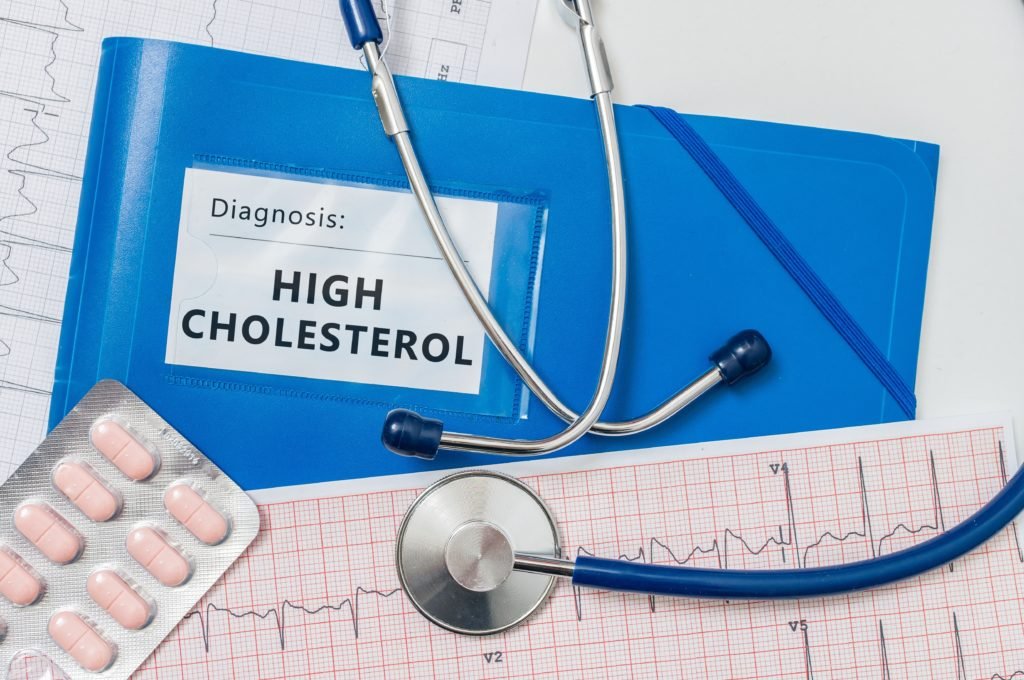
Cholesterol is a waxy, fat-like substance found in every cell of the body, necessary for producing hormones, vitamin D, and substances that help digest foods. However, having high levels of cholesterol in the blood, a condition known as hypercholesterolemia, can increase the risk of heart disease, stroke, and other serious health issues. This comprehensive guide explores what high cholesterol means, its potential health risks, and the most effective treatment options available.
Contents
What is High Cholesterol?
High cholesterol means that there is an excess of cholesterol in your bloodstream. This condition is primarily due to the elevation of low-density lipoprotein (LDL), often referred to as “bad” cholesterol, which can build up in the arteries, reducing or blocking the flow of blood and oxygen to vital organs.
Causes of High Cholesterol
The primary causes of high cholesterol include:
- Genetic factors: Familial hypercholesterolemia, a condition passed genetically, can cause very high cholesterol levels.
- Dietary choices: Consuming high amounts of saturated fats and trans fats.
- Lifestyle: Lack of physical activity, smoking, and excessive alcohol use.
- Other health conditions: Diseases like diabetes, kidney disease, or hypothyroidism can also contribute to high cholesterol levels.
Health Risks Associated with High Cholesterol
High cholesterol significantly increases the risk of:
- Coronary artery disease
- Heart attacks
- Stroke
- Peripheral artery disease
These risks are due to the buildup of plaques in the arteries, a process known as atherosclerosis, which can lead to severe blockages or a rupture causing a heart attack or stroke.
Effective Treatments for High Cholesterol
1. Lifestyle Changes
- Diet: Adopt a heart-healthy diet. Reduce intake of saturated fats and trans fats, and increase dietary fiber.
- Exercise: Regular physical activity can help raise high-density lipoprotein (HDL), the “good” cholesterol, and lower LDL levels.
- Weight Management: Losing weight can help lower LDL levels and improve overall heart health.
- Quit Smoking: Smoking cessation improves HDL cholesterol levels and benefits heart health.
2. Medication
When lifestyle changes are insufficient to lower cholesterol, medications may be necessary:
- Statins: The most commonly prescribed medication for lowering LDL levels and reducing the risk of heart disease.
- Bile acid sequestrants: These drugs help lower cholesterol indirectly by binding with bile acids.
- Cholesterol absorption inhibitors: These reduce the amount of cholesterol absorbed by the intestines.
- Injectable medications: Newer drugs like PCSK9 inhibitors can help the liver absorb more LDL cholesterol, thus lowering the amount of cholesterol circulating in the blood.
3. Natural Supplements and Alternative Remedies
Some people may find benefits from supplements such as omega-3 fatty acids, soluble fiber (like psyllium), and plant sterols and stanols that can help manage cholesterol levels. However, always consult with a healthcare provider before starting any supplements.
Conclusion
Managing high cholesterol is crucial for maintaining cardiovascular health and reducing the risk of heart disease and stroke. Through a combination of diet, exercise, lifestyle changes, and medication (if necessary), it is possible to effectively manage cholesterol levels and improve your long-term health.
FAQs About High Cholesterol
Q: What foods should I avoid if I have high cholesterol?
A: Avoid or limit foods rich in saturated fats and trans fats, such as fatty meats, full-fat dairy products, and processed foods.
Q: Can high cholesterol be cured?
A: While there’s no cure for high cholesterol, it can be effectively managed and controlled with lifestyle changes and medications as prescribed by your doctor.
Q: Is high cholesterol only found in overweight individuals?
A: No, thin people can also have high cholesterol. While being overweight increases the risk, genetics, diet, and lifestyle play crucial roles.
Q: How often should I have my cholesterol checked?
A: It is recommended that adults aged 20 or older should have their cholesterol checked every 4 to 6 years, more frequently if they have risk factors for heart disease.